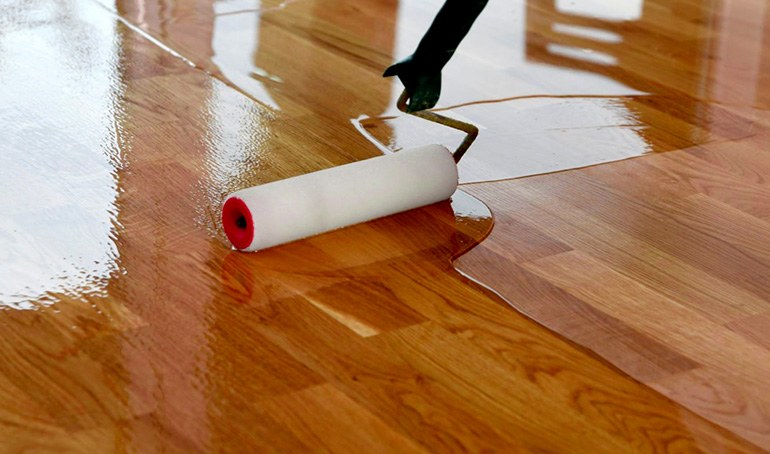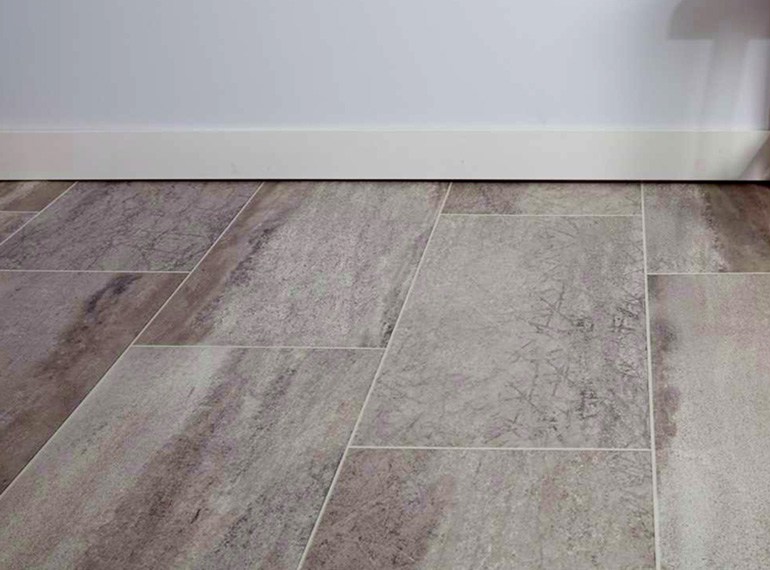
Flooring is an essential aspect of any home, and the choice of floor finish can significantly impact the overall aesthetics, functionality, and value of a property.
In the UK, particularly in London, homeowners are spoilt for choice with a plethora of floor finishes available in the market.
Hardwood Flooring

Hardwood flooring, with its timeless appeal and robust durability, has long been a favoured choice for many homeowners across the United Kingdom.
In fact, according to recent data from Statista in 2022, hardwood flooring accounts for approximately 22% of the total flooring market in the country. This significant market share is a testament to the enduring popularity of hardwood flooring among UK residents.
The preference for this type of flooring is not surprising, given its unique blend of aesthetic appeal, longevity, and the ability to add a touch of elegance and warmth to any home.
Despite the emergence of various flooring alternatives, hardwood continues to hold its ground, reflecting the value that homeowners place on quality and tradition.
The enduring popularity of hardwood flooring is also indicative of the trend among UK homeowners to invest in home improvements that enhance not only the visual appeal but also the value of their properties.
Hardwood Flooring Pros
- Durability – hardwood floors are known for their longevity and with proper care, they can last for decades;
- Aesthetics – hardwood floors offer a timeless, elegant look that can enhance the value of your home;
- Refinishing – unlike other flooring types, hardwood floors can be refinished, extending their lifespan.
Hardwood Flooring Cons
- Cost – hardwood flooring is one of the more expensive options;
- Maintenance – these floors require regular cleaning and refinishing to maintain their appearance;
- Sensitivity – hardwood floors can be sensitive to moisture and temperature changes.
Laminate Flooring

Laminate flooring, a versatile and cost-effective solution, has seen a significant surge in popularity in the UK over recent years. Its market share has impressively risen to 18% according to a 2022 report by Statista.
This growth can be attributed to the unique combination of affordability and versatility that laminate flooring offers. It provides homeowners with the opportunity to enjoy the aesthetic appeal of more expensive flooring options, such as hardwood, without the hefty price tag.
The wide range of styles and finishes available in laminate flooring allows it to seamlessly fit into various interior design schemes, making it a favoured choice for many homeowners.
Its easy installation process and low maintenance requirements further contribute to its growing popularity.
As a testament to its versatility, laminate flooring can be found in various settings, from modern city apartments to traditional country homes across the UK.
Laminate Flooring Pros
- Cost-effective – laminate flooring is less expensive than hardwood but can mimic its look;
- Easy installation – laminate floors are easy to install, making them a popular choice for DIY enthusiasts;
- Durability – these floors are resistant to scratches, making them ideal for high-traffic areas.
Laminate Flooring Cons
- Lifespan – laminate floors typically last between 10 to 20 years, shorter than hardwood floors;
- Non-refinishable – once worn out, laminate floors need to be replaced entirely;
- Water sensitivity – laminate floors can warp if exposed to water for extended periods.
Vinyl Flooring

Vinyl flooring, an increasingly popular choice among UK homeowners, holds a significant 12% of the flooring market share as of 2022, according to Statista.
This type of flooring is particularly appealing due to its affordability, making it an excellent choice for those seeking a budget-friendly option.
Vinyl flooring offers a wide array of design possibilities. It is available in numerous colours, patterns, and styles, allowing homeowners to customise their spaces to their liking.
From mimicking the look of natural stone to replicating the warmth of hardwood, vinyl flooring provides aesthetic versatility without the hefty price tag.
In addition to its cost-effectiveness and design flexibility, vinyl flooring is also known for its durability. It can withstand heavy foot traffic, making it an ideal choice for busy households. It is resistant to water and stains, which adds to its appeal for use in kitchens, bathrooms, and other areas prone to spills and moisture.
Vinyl Flooring Pros
- Water resistance – vinyl is an excellent choice for areas prone to moisture, like bathrooms and kitchens;
- Comfort – vinyl floors are softer underfoot compared to hardwood or tile;
- Variety – vinyl comes in a wide range of styles and colours.
Vinyl Flooring Cons
- Durability – while vinyl is resistant to water and stains, it can be easily scratched or dented;
- Lifespan – vinyl floors have a shorter lifespan compared to hardwood or tile;
- Environmental impact – vinyl flooring is not biodegradable and can release volatile organic compounds (VOCs).
Tile Flooring

Tile flooring, which encompasses both ceramic and porcelain varieties, has long been a favoured choice among homeowners in the United Kingdom.
As per recent data from Statista in 2022, tile flooring holds a significant 20% share of the UK’s flooring market, demonstrating its widespread acceptance and popularity.
Tiles, with their inherent durability and versatility, offer a unique blend of practicality and aesthetic appeal.
They are available in a multitude of designs, colours, and textures, allowing homeowners to customise their homes to their liking. From the rustic charm of terracotta tiles to the sleek elegance of polished porcelain, there’s a tile for every taste and style.
Tile flooring is renowned for its resilience. It stands up well to heavy foot traffic, making it an ideal choice for busy households.
It’s also resistant to water and stains, which makes it a preferred option for areas prone to spills and moisture, such as kitchens and bathrooms.
The benefits of tile flooring extend beyond its physical attributes. It’s also a cost-effective solution in the long run. While the initial cost may be higher than some other flooring options, its longevity and low maintenance requirements make it a financially sound investment over time.
Tile Flooring Pros
- Durability – tile floors are incredibly durable and resistant to scratches and stains;
- Water resistance – tiles are an excellent choice for areas prone to moisture;
- Variety – tiles come in various designs, sizes, and colours.
Vinyl Flooring Cons
- Hardness – tile floors can be uncomfortable to stand on for extended periods;
- Cold – tiles can feel cold underfoot, especially during winter;
- Installation – tile installation can be complex and time-consuming.
How to choose the right floor finish
Choosing the right floor finish is a crucial decision that can impact your home’s comfort, aesthetics, and value.
Each flooring type has its pros and cons, and the best choice depends on your budget, lifestyle, and personal preferences.
Whether you prefer the classic elegance of hardwood, the affordability of laminate, the water resistance of vinyl or the durability of tile, understanding these options can help you make an informed decision for your UK home.
Ready to transform your home with the perfect flooring?
Whether you’re leaning towards the timeless elegance of hardwood, the practicality of laminate, the water resistance of vinyl, or the durability of tile, Resand.co.uk is here to help.
Our team of experts can guide you through the process, ensuring you make the best choice for your home.
Don’t wait – elevate your living space today. Contact us now for a free consultation and let’s start creating your dream floor!

Lily Edwards is a dedicated blog author for ReSand.co.uk, using her background in Interior Design to write insightful articles on floor care, including sanding, oiling, and polishing.
When she's not crafting informative blog posts, Lily enjoys exploring the British countryside, antique hunting, and indulging her love for DIY home improvement projects.
